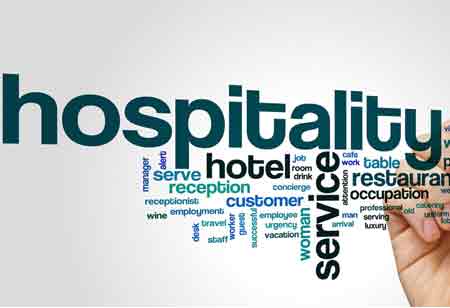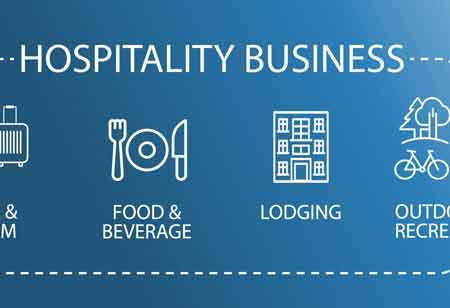Thank you for Subscribing to Hospitality Business Review Weekly Brief
Key Trends Shaping Hospitality Procurement's Future
Sustainability, Technology, Centralization, Supply Chain Resilience, and Guest Experience Will Drive Efficiency Improvement for Hospitality Procurement in the Future

By
Hospitality Business Review | Tuesday, June 10, 2025
Stay ahead of the industry with exclusive feature stories on the top companies, expert insights and the latest news delivered straight to your inbox. Subscribe today.
Fremont, CA: The hospitality industry heavily depends on efficient processes, customer satisfaction, and effective cost management. It is currently experiencing significant changes in its procurement practices. As technology advances, sustainability concerns grow, and consumer expectations shift, hospitality procurement adapts to meet new challenges and seize opportunities. Numerous key trends are emerging that will shape procurement approaches in hotels, resorts, and other hospitality businesses. These trends reflect broader economic changes and emphasize the need for procurement to evolve. The focus is driving operational efficiency, enhancing the guest experience, and promoting sustainability.
The hospitality industry is becoming ever more focused on sustainability. Hotels and resorts are under pressure to reduce their environmental footprint, among other things. Procurement has long been at the forefront in sourcing what are considered 'green' products, reducing waste, and ensuring sustainability best practices from suppliers. The practice is no longer merely a means to comply with regulation and consumer preference but also a way to achieve cost-effectiveness through resource efficiency in the long run. And when sustainability becomes a top priority, procurement will only continue to evolve toward ethical sourcing, carbon footprint reduction, and circular economy. Technology and data analytics are increasingly growing in shaping hospitality procurement.
Cloud-based procurement platforms ensure efficient ordering and inventory tracking. The data generated here can also be beneficial for informed purchasing decisions. Historical data from usage patterns, cost, and supplier performance can enable hotels to optimize their purchasing strategy, negotiate better prices, and reduce waste. Automation, for instance, through a process robot, automates routine processes such as order processing and invoice management. The infusion of artificial intelligence and machine learning further improves procurement by providing predictive analytics, enabling businesses to predict better and make more accurate forecasts. There is a growing trend towards centralized procurement in the hospitality industry. Large hotel chains and resort brands consolidate purchasing functions to achieve economies of scale and greater supplier bargaining power.
Centralization enables better contracts, efficiency in the supply chain, and consistency across locations. This is best observed in multinational hotel chains where procurement teams are assumed to deal with a wide range of products and services. Some smaller independent hotels adopt the shared procurement model to benefit from collective buying power without sacrificing flexibility or control over individual needs. The COVID-19 pandemic has highlighted the vulnerabilities in global supply chains, impacting various industries, including hospitality.
Procurement professionals focus on building resilient and agile supply chains to mitigate risks and ensure continuance in service delivery. Diversification of suppliers is among the diversification methods, followed by closer relationships with local vendors combined with flexible procurement strategies. Hospitality procurement now focuses on innovation toward enhancing guests' comfort and access to high-quality products and services, such as eco-friendly toiletries and personalized amenities. Procurement teams interact with suppliers to ensure their products cohere with brand identity and target audience preferences.







